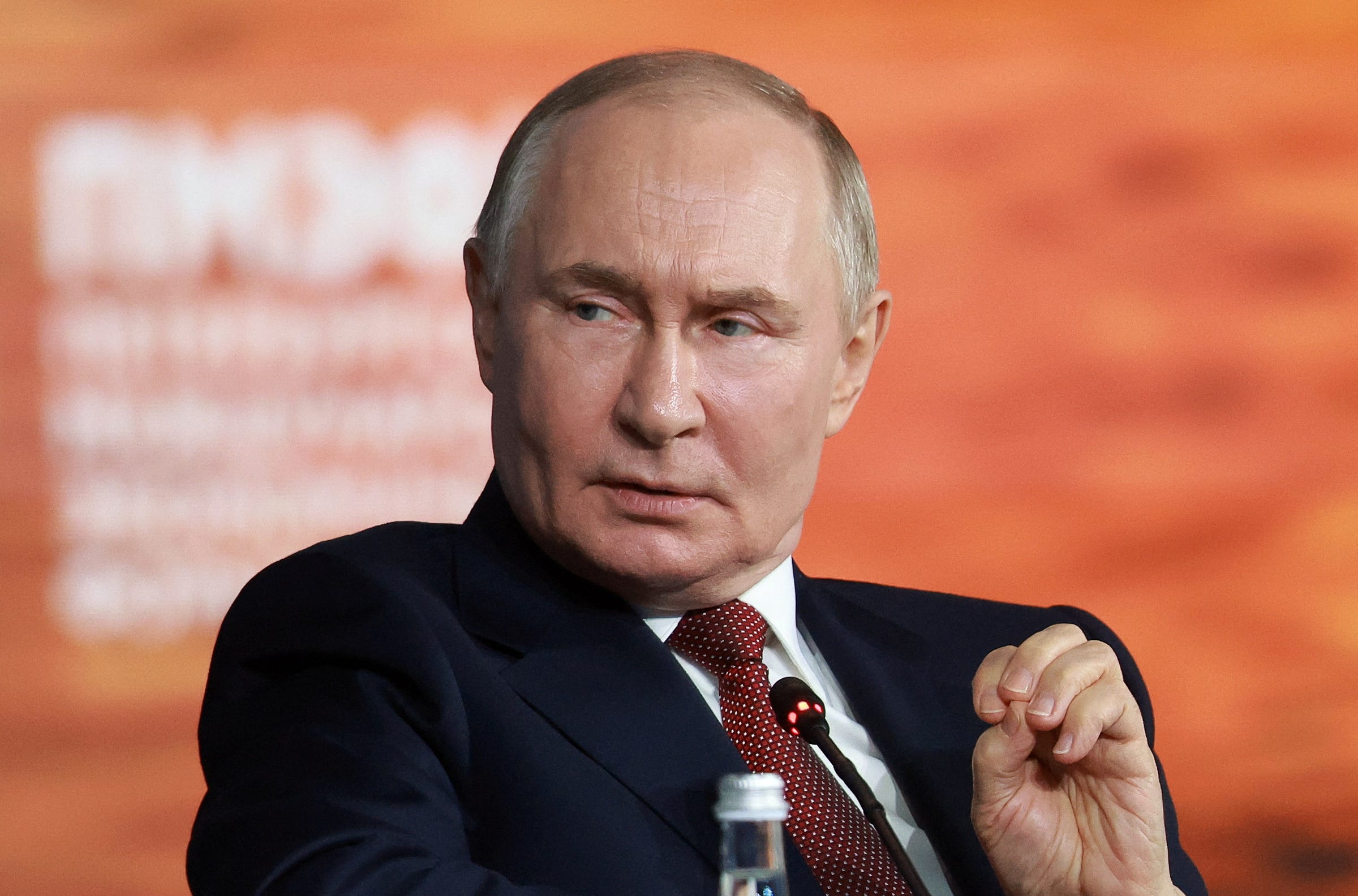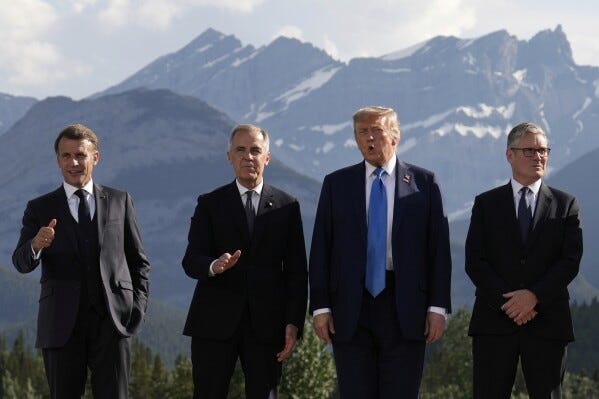Trump's Iran Bombing: A $50 Billion Gift to Putin's War
As allies ramped up sanctions against Russia, Trump departed G7 meeting early to coordinate strikes on Iran that help Putin's war machine
Trump skulked away from last week’s G7 summit in Alberta, Canada, where world leaders were coordinating sanctions against Russia’s oil sector. He left saying he had something big to take care of and within days launched the unprecedented B2 attack on Iran’s nuclear facilities that is guaranteed to spike global energy prices. While allies tightened screws on Putin's revenue streams, Trump handed Moscow a $50 billion annual windfall through manufactured Middle East chaos.
Sunday’s strikes on Fordow, Natanz, and Isfahan sent oil from $69 to $80 per barrel—exactly the price surge Putin needed. Every $10 increase delivers roughly $40 billion annually to Russian coffers. With Russia exporting 4.6 million barrels daily, sustained elevation means $42-50 billion in additional revenue for a war machine that's consumed $450 billion.
The G6 + 1
The G7 was coordinating sophisticated new measures: enhanced tracking of shadow fleet tankers, stricter price cap enforcement, coordinated sanctions on Russian oil infrastructure. Trump left that multilateral effort to pursue unilateral military action that renders all sanctions meaningless.
When oil hits $77, the G7's $60 price cap becomes irrelevant. Shadow fleet tankers carrying 61% of Russian crude suddenly operate in a seller's market where buyers pay premiums instead of demanding discounts. Russian Urals crude narrowed its discount to Brent from $13 to just $2.50 per barrel—that $23 increase translates to $105.8 million in additional daily revenue.
Putin's Perfect Setup
The diplomatic clues were evident since January when a Russia-Iran gas deal for 55 billion cubic meters annually provided Tehran with the revenue security it requires. Both nations share shadow fleets, coordinate sanctions evasion through China, and benefit from sustained Middle East volatility.
The most cynical aspect of the plan is Putin’s justification for Trump’s actions by raising a new concern for Israel’s Russian-speaking community. A day before the US strikes on Iran, Putin addressed the St. Petersburg Economic Forum, stating that Israel “is” almost a Russian-speaking country with “almost two million people from the former Soviet Union and the Russian Federation.” It’s worth noting that there are many Russian speakers in Ukraine, and yet his war on Ukraine continues unabated.
Putin’s demographic maneuver provides him with perfect cover for calculated neutrality, while Trump risks American national security to boost Putin’s oil revenues.
The 1979 Playbook
Anyone who lived through 1979 recognizes this script: Iranian crisis, oil shortages, price spikes, massive windfalls for oil producers. The Iranian revolution created supply fears that enriched the Soviet Union during its Afghanistan war. Trump's bombing creates identical supply fears that enrich Putin during his Ukraine war.
Paid subscribers can access a deeper dive with details that analyze the impact on Ukraine’s war, and the potential disruptions in the Straits of Hormuz. Take advantage of our 35% off our annual subscription rate.






